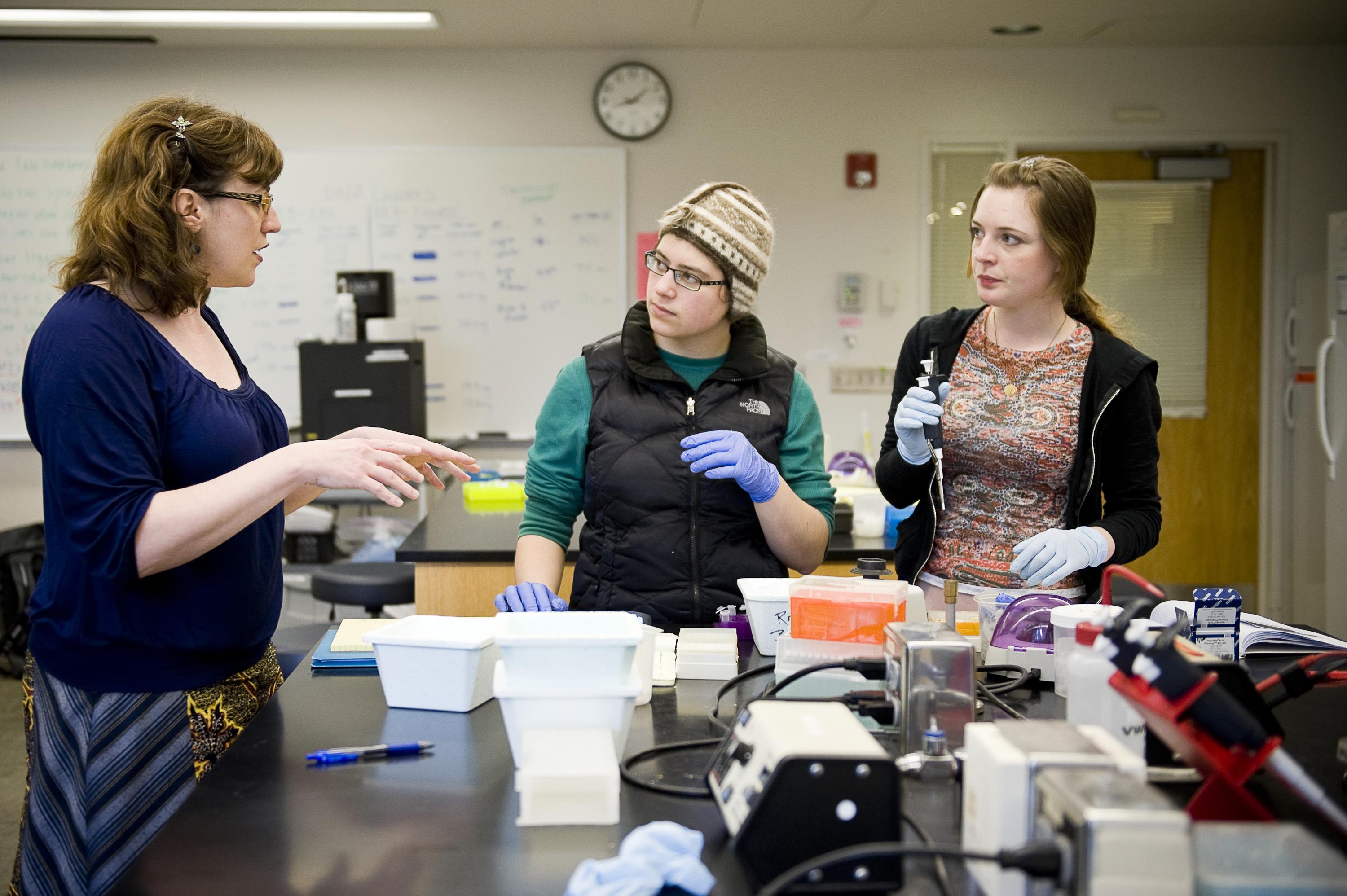Project Goals | Understanding Student Research Needs
Needs Assessment Report, September 2014
- Marianne Colgrove, Computing & Information Services
- Annie Downey, Library
- Tiffany Hays, University of Washington MLIS
- Trina Marmarelli, Computing & Information Services
The Evidence to Scholarship (E2S) project goal is to build a bridge from first-year introductory courses to the competencies students will need to conduct senior-level thesis research in their disciplines. During spring 2014, a needs assessment was conducted in order to identify services, resources and curriculum strategies to help sophomores and juniors develop independent research skills. The needs assessment explored both faculty expectations and student strategies, in order to understand the gap between faculty and student perspectives on the research process. The study was conducted in two sequential phases: focus group discussions with students and faculty, followed by a survey of sophomores and juniors. The needs assessment findings are summarized in this report, while detailed information on the research methods and results is available on the E2S project website.


Related Links
- Full Report (PDF)
- Needs Assessment Methods
- Needs Assessment Presentation (Prezi)
Major Findings
Faculty characterize research as a complex process with many facets that students must ultimately integrated into a unified research assignment. In working on research assignments, faculty expect students to:
- Understand the disciplinary context
- Ask researchable questions
- Integrate scholarly resources and data to support an argument
- Learn discipline-specific methods
- Understand research as a conversation among scholars
Faculty expressed numerous challenges as they work to cultivate student research skills:
- Time constraints in and outside of class
- Balancing instruction of content and methods
- Widely varying student experience in mid-level courses
- Students use inefficient strategies to locate and organize sources and data
Across disciplines, faculty emphasized the importance of a good research question to guide the process. When asked what they think faculty expect, students ranked the research question as moderately important.
Many students aren’t sure what is expected in a research assignment. They find it challenging to have enough time for the assignment, and to know if they’ve done a good job. Students find sorting through results and reading all their sources to be challenging, but they report relatively few challenges with the mechanics of searching and citing sources. Faculty, on the other hand, identified numerous problems students had with locating appropriate and relevant sources for their assignments.
Students would like services and resources that help them choose a realistic topic and better understand the components of a successful research assignment. They are more likely to use services that are integrated into their courses. Several recommendations for curriculum strategies, services, and resources emerged from the needs assessment:
Curriculum strategies
- Start working with sources earlier in the curriculum
- Focus on how to define a research question
- Break assignments into manageable parts
- Clarify expectations
- Integrate discipline-specific research methods
- Replicate successful strategies from other classes
Services and resources
- Training and services integrated into classes
- Technology tools for working with data and texts
- Templates and rubrics
- More full text, optimized for mobile devices
- Greater awareness of available support services
- More opportunities to learn from each other (people like focus groups!)